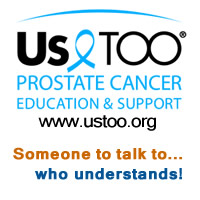|
||||||||
| Home | News You Can Use |
About Us TOO Florence |
Personal Journeys | Slideshows | Contact Us | |||
Events News you can use Treatments |
Us TOO FLORENCE - BEHIND THE HEADLINES-6 BY BOB HORNEY - PROSTATE CANCER SURVIVOR - Us TOO CHAPTER LEADER (Published February 12, 2014, The Siuslaw News) The headlines read: USPSTF/AAFP Issue Final Recommendation Against Routine PSA-based Screening for Prostate Cancer; U.S. Preventive Services Task Force Advises against PSA Screening; U.S. panel recommends against PSA tests for screening prostate cancer in men of all ages; USPSTF: No healthy men should be tested for prostate cancer; U.S. Panel Says No to Prostate Screening for Healthy Men; USPSTF Recommends Against Prostate Cancer Screening. Looking at those headlines, one would think prostate cancer has been conquered and is a disease of the past. Only by looking behind the headlines, or around the neighborhood, would one realize that it is still the most frequently diagnosed non-skin cancer in men and is second only to lung cancer in cancer-caused male deaths. How can anyone recommend against early detection of such a deadly disease? Well, it's a long story, but I'll try to sort it all out. First, we'll get some background information on the USPSTF...like, who are these people...from the USPSTF website: "Created in 1984, the U.S. Preventive Services Task Force is an independent, volunteer panel of national experts in prevention and evidence-based medicine. The Task Force works to improve the health of all Americans by making evidence-based recommendations about clinical preventive services such as screenings, counseling services, and preventive medications." "Task Force members come from the fields of preventive medicine and primary care, including internal medicine, family medicine, pediatrics, behavioral health, obstetrics and gynecology, and nursing. Their recommendations are based on a rigorous review of existing peer-reviewed evidence and are intended to help primary care clinicians and patients decide together whether a preventive service is right for a patient's needs." Since its inception, the USPSTF has made and maintained recommendations on more than 100 clinical preventive services that are intended to prevent or reduce the risk for heart disease, cancer, infectious diseases, and other conditions and events that impact the health of children, adolescents, adults, and pregnant women. The task force is made up of 16 members who serve terms of 4 years. Yes, in case you were wondering, this is the same task force, although different members, that created a huge firestorm in 2009 by recommending that women between the ages of 40-49 no longer receive routine screening for breast cancer and that breast self-exams no longer be taught. Since their recommendations are intended to guide primary care physicians, they really affect us at our very earliest entry into the health care system. That is what makes our screenings for breast and prostate cancer so perilous. It basically comes down to how strong we are as advocates for our own health care. How willing are we to demand the screening that we want...that just might save our life? When I look at the PSA screening recommendation and then look at the description of the USPSTF, I have several concerns that jump out at me, such as: The members of the task force are referred to as "national experts" who do "rigorous reviews" and present "evidence-based recommendations." Personally, I believe all of those attributes are overly generous. What we are confronted with is this: Do we trust our prostate health care to the USPSTF's recommendation, based largely on the heavily flawed Prostate, Lung, Colorectal and Ovarian (PLCO) Study that started over 20 years ago and was never designed to study PSA screening versus no PSA screening? Or, do we trust the urologists who actually diagnose, treat and provide up-to-date on-going health care for prostate cancer patients on a daily basis? As we look next month at the PLCO study, the one study that was most influential in the task force's recommendation against PSA screening for prostate cancer, I think the answer will come into focus. |
| www.ustooflorence.org Copyright © 2010 - 2024 | |

